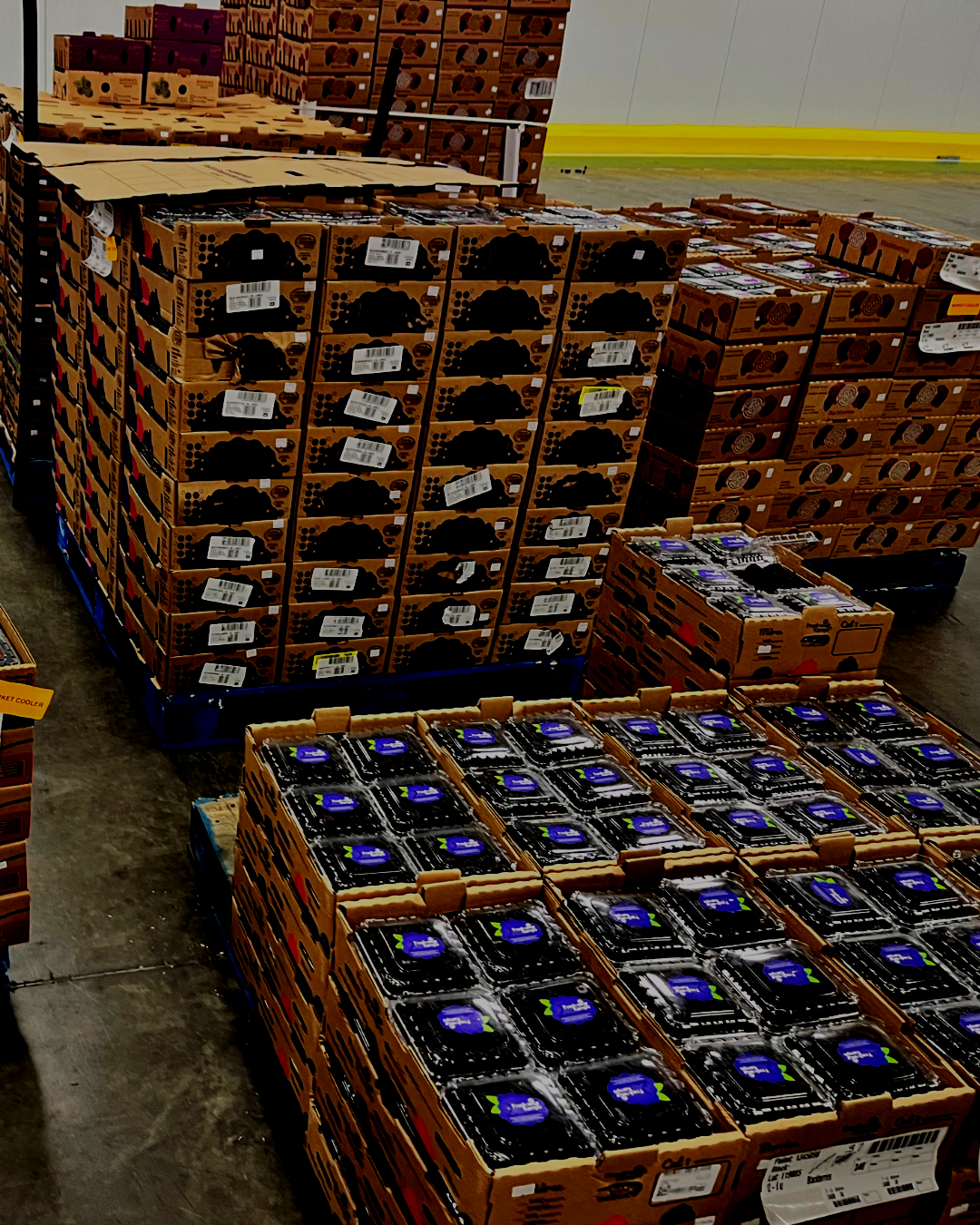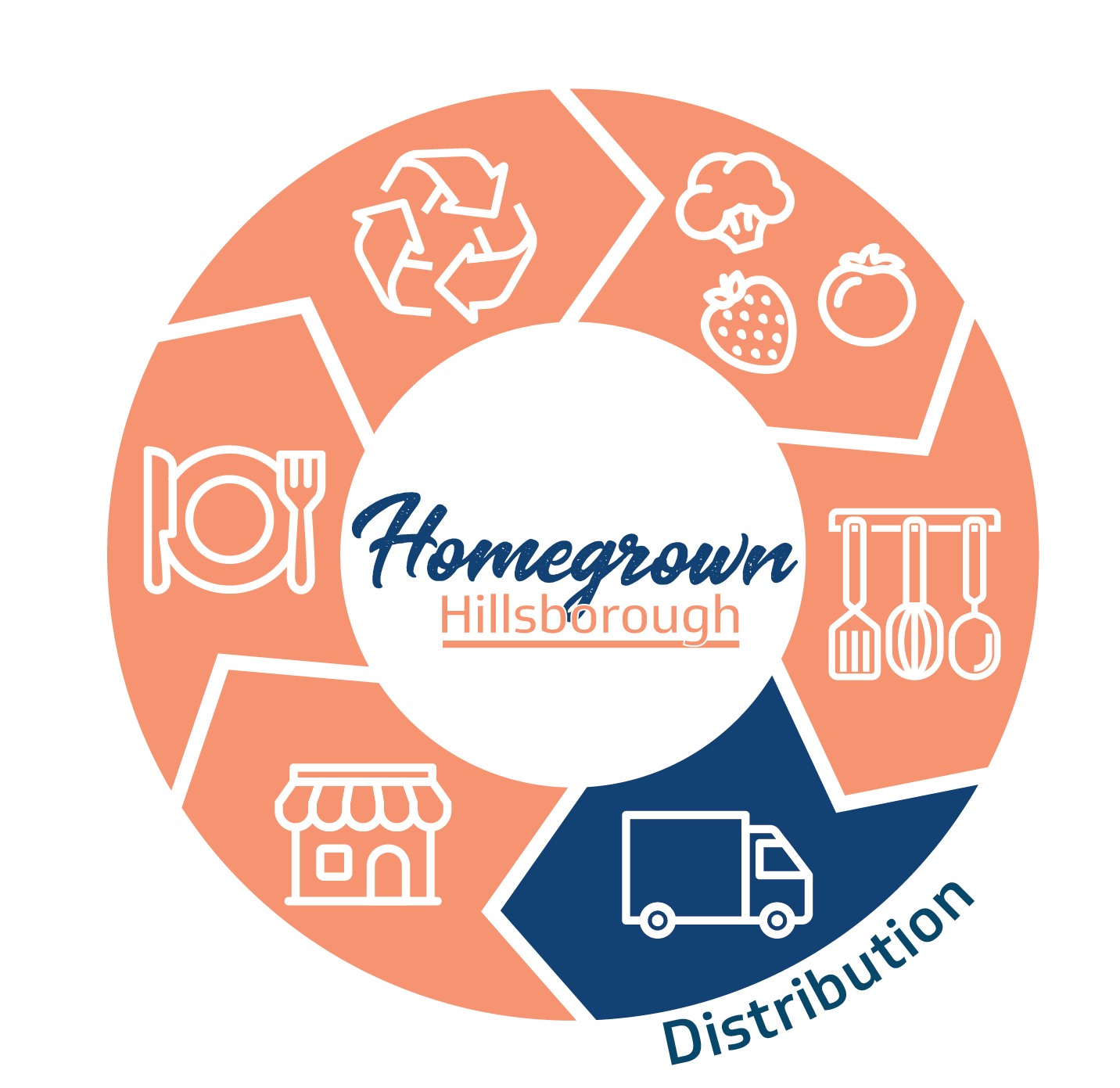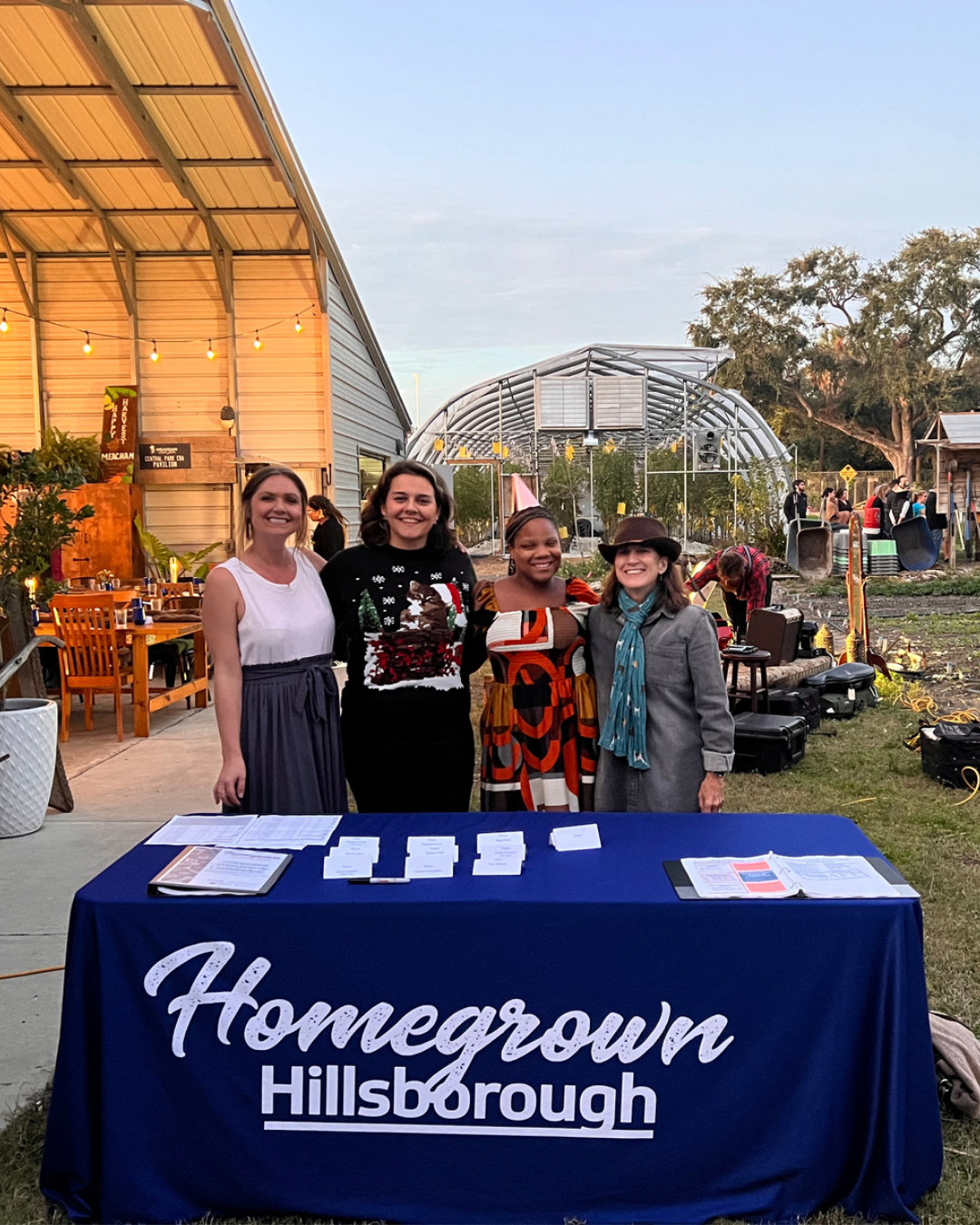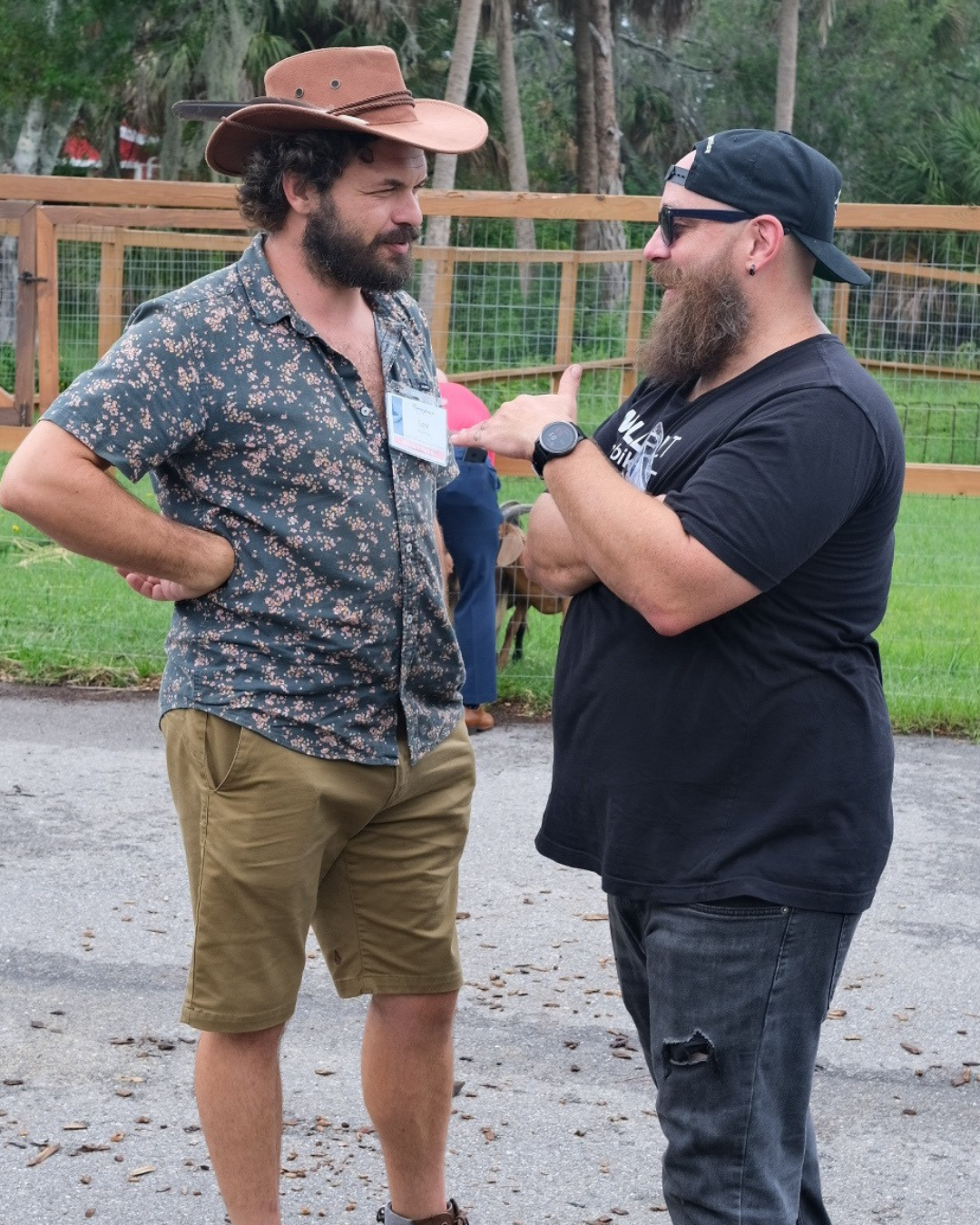
Distribution
A food system includes all the processes and infrastructure involved in feeding a population, as depicted in the sectors below. The Food System Wheel is Homegrown Hillsborough’s depiction of the interconnected aspects that influence nutrition, food, health, community development, and agriculture.
Distribution is the process that supplies a community with food. It is the movement of products to market and consumer access.

Distribution:
Key Concepts
-
The capacity over time of a food system and its components at all levels to provide sufficient, appropriate, and accessible food to all, in the face of various and unforeseen developments
-
The existence of a large number of different kinds of animals and plants which make a balanced environment.
-
A food system that provides food security and nutrition for everyone while also being economically, socially, and environmentally sustainable.
Economic sustainability: The system is profitable
Social sustainability: The system has broad-based benefits for society
Environmental sustainability: The system has a positive or neutral impact on the natural environment.
Sustainable food systems require integrated actions from multiple stakeholders at local, national, regional, and global levels. These actions should take place across multiple fronts, including: agriculture, trade, policy, health, environment, gender norms, education, and transport and infrastructure.
-
The practice of growing food and raising animals in urban and suburban areas; it can include community gardens, rooftop farms, vertical production, backyard plots, raising backyard chickens, urban apiaries, and controlled environmental agriculture.
-
A sustainable farming method that combines aquaculture and hydroponics to grow plants and fish in the same system:
Aquaculture: The practice of raising fish in a controlled environment
Hydroponics: The practice of growing plants without soil
-
Food sovereignty is the right to choose within the food system and adheres to these seven pillars: focuses on food for people; builds knowledge and skills; works with nature; values food providers; localizes food systems; puts control locally; and food is sacred.





